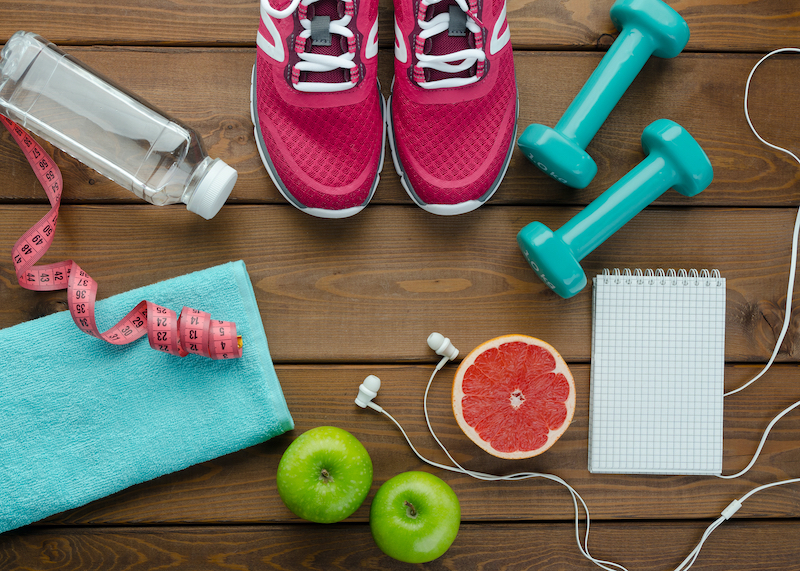


What are your health and fitness goals for 2020? While experiencing a rush of motivation at the start of a new year, it is tempting to seek a ‘quick fix’ to weight loss. However, now that we’re well and truly into 2020, that drive has started to wane.
Finding longer-term solutions will improve your chance of keeping the weight off and staying healthy all year round, so here are our top tips to help you achieve your goals.
Focus on the long-term
Weight loss and maintaining a healthy lifestyle come down to balancing the right foods with physical activity. Fad diets and other ‘quick fix’ weight loss options focus on calorie restriction and can be difficult to stick to. It’s also easy pile the weight back on after stopping the diet. That’s why making healthy lifestyle changes and creating habits is the way to go. Focus on what changes you can maintain in the long-term.
Fad diets are those that promise a quick fix by excluding or restricting food groups and nutrients.
The first step to reaching your health and fitness goals is understanding what your body needs. In Australia, less than 1 in 10 adults met the recommendations for daily vegetable consumption in 2017-18 and 1 in 2 adults did not meet the physical activity guidelines. If you are fuelling your body with the right foods and getting enough physical exercise, you are on the right track.
Be mindful of diets
It’s important to know and understand the characteristics of popular diets, so you can make an informed decision about whether they will help or hinder your health goals.
Juicing/detoxification: these usually last two to 21 days and are based around fasting and instead using vitamin or mineral supplements in place of meals. These diets cause people to lose weight rapidly but are very restricting and can cause nutrient deficiencies in the long-term.
Intermittent fasting: this diet involves a combination of fasting days and usual eating days. Similar to a detox diet, they can lead to rapid weight loss but are hard to stick to as it often leads to feelings of intense hunger and binge eating.
The paleo diet: this diet excludes processed foods and sugars, including two major food groups – grains and dairy foods. While it can lead to weight loss, people may be at risk of nutritional deficiencies.
Set manageable fitness goals
The first step to completing your goals is to change your attitude about health and fitness to help you remain focussed. It is important set goals that are SMART (specific, measurable, attainable, relevant and time-based) and are both long-term and short-term. Writing these goals down and displaying them somewhere that you pass every day, will help you stay motivated and on track.
If you are starting a new fitness program, remember to start small with easy, low impact activities. It is important to set yourself up for success which you can build on, rather than starting in the deep end. If you already follow a fitness program, try to up the intensity or incorporate a new gym class or activity into your routine.
Health and fitness tips
It is possible to achieve and maintain a healthy body weight without cutting any foods from your diet. Here are some tips from our home doctor experts at House Call Doctor:
- Your diet should incorporate the five food groups
- Drink plenty of water
- You can eat everything – in moderation. Limit the amounts of sugars, and food and drinks containing added sugars, in your diet. In particular, limit sugar-sweetened beverages.
- Limit your alcohol intake
- Keep portions moderate in size
- Eat until you have had enough – not until you are full.
If you are thinking of adopting any new diet, it is best to seek support from a healthcare professional to ensure you’re not missing out on essential nutrients.




